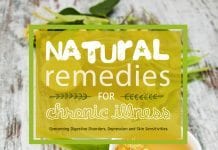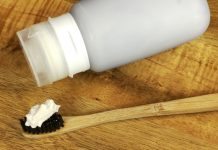
Are All Fats Good For You?
The Myths On Fats Is Slowly Starting To Unravel
Its great to see that oils and fats are starting to get some “positive” press. But, the thinking behind which fats are good for you are still firmly entrenched in the myth and lies that goes back to generations before us.
This article grabbed my attention recently.
While this article has some definite pluses for the fight for good fats, two things really stood out for me that I don’t agree with and could end up confusing the reader even further.
1. That saturated fats and trans fats are lumped together on the same “bad list”.
trans fat found in margarine, vegetable shortening, and partially hydrogenated vegetable oils are the true villains, causing far more significant health problems than saturated fat ever could!
Trans fats are formed when hydrogen is added to vegetable oil during food processing in order to make it solidify. This process, known as hydrogenation, makes fats less likely to spoil, so foods stay fresh longer, have a longer shelf life and also have a less greasy feel.
On the other hand:
The benefits of saturated fats far out way and therefore could not be put under the same category as trans fats.
- Saturated fatty acids constitute at least 50% of the cell membranes. They are what gives our cells necessary stiffness and integrity.
- They play a vital role in the health of our bones. For calcium to be effectively incorporated into the skeletal structure, at least 50% of the dietary fats should be saturated.
- They lower Lp(a), a substance in the blood that indicates proneness to heart disease. They protect the liver from alcohol and other toxins, such as Tylenol.
- They enhance the immune system.
- They are needed for the proper utilization of essential fatty acids. Elongated omega-3 fatty acids are better retained in the tissues when the diet is rich in saturated fats.
- Saturated 18-carbon stearic acid and 16-carbon palmitic acid are the preferred foods for the heart, which is why the fat around the heart muscle is highly saturated. The heart draws on this reserve of fat in times of stress.
- Short- and medium-chain saturated fatty acids have important antimicrobial properties. They protect us against harmful microorganisms in the digestive tract.
Statistics courtesy of Dr Mercola
Read more here about Saturated Fats
2. Vegetable or seed oils, once sold as the “healthy” oils are in fact not healthy at all and should not be used to cook with.
Canola, corn, soybean, safflower and sunflower oils contain linoleic acid. According to researchers the fatty acid-derived toxin 4-hydroxy-trans-2-nonenal (HNE) collects in high amounts in polyunsaturated oils that have linoleic acid.
One of the most healthiest fats you can eat and cook with is coconut oil.
You can read more here about the benefits of coconut oil
I hope you enjoyed this article. If you have any questions or comments on good or bad fats I’d love to hear from you.































